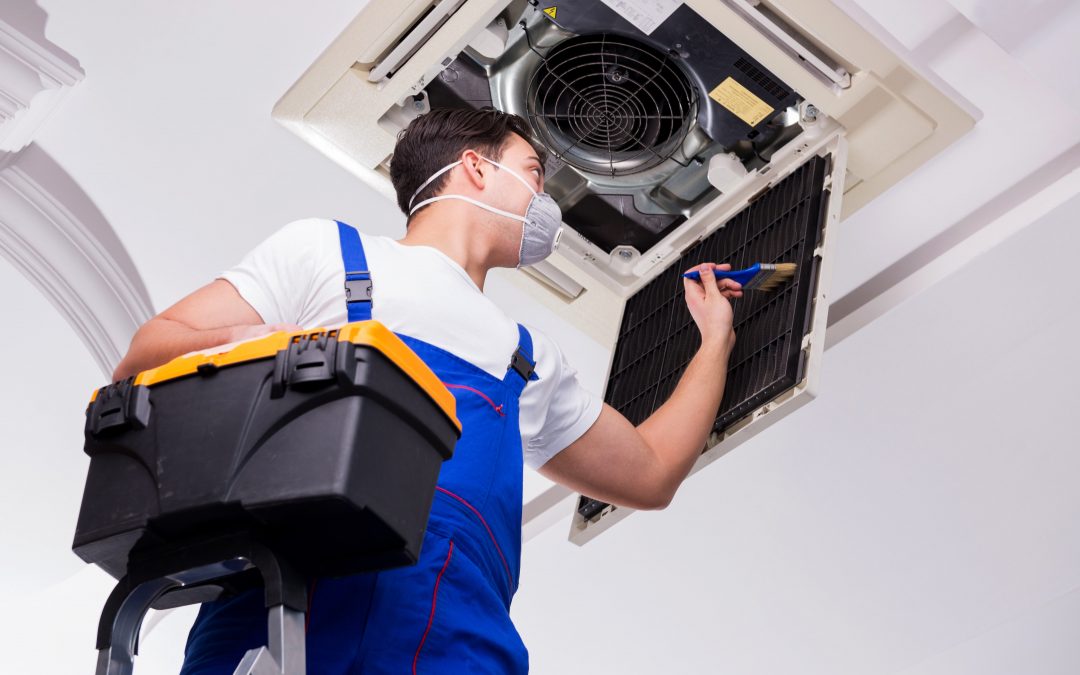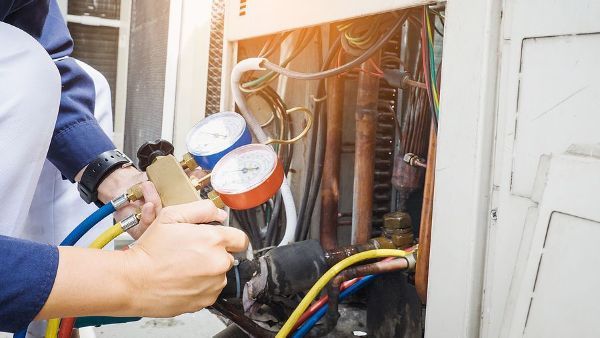Why you should schedule seasonal service with an HVAC contractor
Understanding Cooling And Heating: Typical Problems of Air Conditioner Devices and Their Solutions
Heating and cooling systems play a vital role in preserving indoor convenience. Air conditioning units frequently run into typical issues that can prevent their efficiency. Concerns like poor air conditioning, uncommon noises, and regular cycling can indicate deeper mechanical issues. On top of that, water leakages and unpleasant smells can endanger air quality. Recognizing these challenges and their services is very important for effective upkeep. What actions can house owners take to guarantee their air conditioner units operate efficiently?
Inadequate Cooling Performance
What creates poor cooling performance in an a/c system? Several aspects can add to this issue. A common cause is a filthy air filter, which restricts air flow and decreases cooling performance. Furthermore, low refrigerant degrees as a result of leaks can impede the system's ability to take in heat effectively. Another potential issue may emerge from a malfunctioning thermostat, bring about incorrect temperature level analyses and inappropriate cooling cycles. Obstructed or dirty condenser coils can likewise avoid warmth dissipation, further influencing efficiency. Ultimately, ductwork issues, such as leaks or obstructions, can cause irregular cooling throughout a room. Recognizing these problems without delay is important for maintaining suitable HVAC feature and making certain a comfortable indoor environment. Regular upkeep and assessments can aid minimize these concerns and boost the system's overall effectiveness.
Uncommon Sounds Coming From the Air Conditioner Unit
A selection of unusual noises coming from an air conditioner device can indicate underlying issues that need interest. Common noises consist of rattling, which might recommend loosened components or particles within the unit. Hissing sounds often indicate refrigerant leaks, endangering the system's performance. A grinding audio might indicate damaged bearings or electric motor problems, while a piercing squeal could signal a trouble with the compressor or a slipping belt.
Each of these sounds acts as an indication that something might be wrong, possibly resulting in more considerable damage if not addressed immediately. House owners need to stay clear of neglecting these acoustic hints and think about speaking with a qualified heating and cooling technician for medical diagnosis and fixing. Timely intervention can not only restore performance but also prolong the lifespan of the device. ac unit replacement. Acknowledging these sounds as indications of problem is important for maintaining peak air conditioning performance
Constant Cycling On and Off
Frequent cycling on and off can indicate inadequacies or breakdowns within a cooling and heating system, frequently referred to as short-cycling. This problem can lead to increased power consumption and might trigger unnecessary endure the unit's components. Numerous elements can contribute to this issue, consisting of a poorly sized cooling device, a malfunctioning thermostat, or filthy air filters. When an a/c unit is as well huge for the area, it cools down also promptly, triggering it to cycle regularly without sufficiently evaporating the air. If the thermostat is damaged, it may improperly indicate the unit to switch on and off. Furthermore, obstructed or unclean air filters can restrict airflow, triggering the system to work tougher and cycle extra usually. Attending to these concerns without delay is necessary to enhance effectiveness, prolong the life expectancy of the a/c system, and maintain suitable interior convenience.
Water Leakages and Drainage Issues
Water leakages and drain problems can pose significant obstacles for cooling and heating here systems, bring about potential damages and inefficiencies. These troubles frequently originate from blocked condensate drains, which avoid water from draining effectively and can lead to overflow. Additionally, damaged drainpipe frying pans or improper installment might aggravate these leakages, causing water to build up in undesired locations.
Routine upkeep is vital to protect against such concerns; guaranteeing that condensate lines are clear and drainpipe pans are intact can alleviate the threat of leakages. House owners ought to regularly inspect for signs of dampness around the system, as very early discovery can stop more comprehensive damage. In situations where leakages are determined, prompt action is needed, which may include removing blockages or replacing defective parts. Dealing with water leaks and drain concerns not just safeguards the cooling and heating system but likewise keeps indoor air high quality and convenience.
Bad Odors and Air Quality Problems
Bad smells originating from heating and cooling systems can indicate major air high quality issues. Typical sources of these undesirable scents include mold, mildew, or germs growth in the ductwork, commonly because of moisture build-up. If the system has an undesirable, moldy smell, it might indicate that the air filters are blocked or that there is inadequate ventilation, permitting contaminants to distribute. In addition, a burning odor could suggest electrical concerns or overheating components, needing prompt interest.
House owners need to regularly change air filters and schedule routine maintenance to ensure peak air quality. Making use of an air cleanser can also check here help remove smells and improve indoor air top quality. If odors continue regardless of these procedures, professional inspection and cleaning might be necessary to identify and fix underlying issues. ac unit replacement. Awareness of these odors is crucial, as they can influence health and wellness and comfort in interior atmospheres

Frequently Asked Inquiries
Just how Typically Should I Set Up A/c Upkeep?
It is suggested to schedule a/c upkeep a minimum of yearly, ideally prior to the cooling season starts. Regular assessments can help recognize concerns early, guaranteeing effective procedure and extending the life expectancy of the unit.

What Is the Average Life Expectancy of an A/c Device?
The ordinary life expectancy of an air conditioner device commonly varies from 15 to two decades. Variables such as maintenance, use patterns, and environmental problems can considerably influence this duration, influencing overall efficiency and efficiency with time.
Just how Do I Choose the Right Size AC Device for My Home?

What Are the Indications My Air Conditioning System Needs Replacement?

Can I Install an Air Conditioner System Myself?
While installing an air conditioning system oneself is read more possible, it calls for technological understanding and appropriate tools. ac fix. Many people may encounter challenges with installment, possibly resulting in inadequacy or security dangers, making expert support recommended for ideal outcomes
Conclusion
In summary, recognizing usual cooling and heating issues and their services is crucial for keeping effective air conditioner device efficiency. Attending to issues such as poor air conditioning, uncommon noises, frequent cycling, water leakages, and unpleasant odors can significantly enhance indoor convenience and air quality. Routine maintenance, consisting of filter changes and timely repair services, plays a significant duty in avoiding these issues. By remaining proactive, homeowners can assure their HVAC systems operate properly, eventually extending the life expectancy of their a/c units.